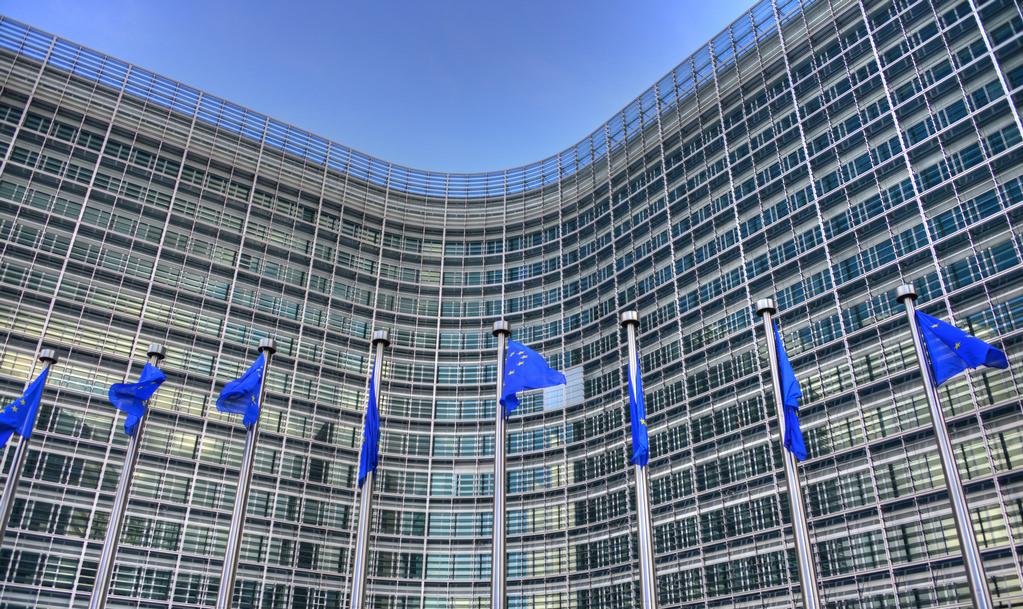
Two of the major European solar trade associations, the European Solar Manufacturing Council (ESMC) and SolarPower Europe (SPE), have called for EU policymakers to take measures to support European solar manufacturing.
In a joint letter to the European Commission and Ministers of the Competitiveness Council ahead of a solar PV ministerial meeting on 30 September 2025, the two solar associations have called for additional measures beyond the EU’s Net Zero Industry Act (NZIA) that was passed last year.
Try Premium for just $1
- Full premium access for the first month at only $1
- Converts to an annual rate after 30 days unless cancelled
- Cancel anytime during the trial period
Premium Benefits
- Expert industry analysis and interviews
- Digital access to PV Tech Power journal
- Exclusive event discounts
Or get the full Premium subscription right away
Or continue reading this article for free
The letter notes that the European solar sector is at a “crossroads”, with solar deployment stalling – SPE forecasts 2025 to be the first year in over a decade where solar PV additions will decline – and with manufacturing under “existential threat”.
“Europe’s solar industry is at a crossroads. Without immediate, coordinated action, Europe risks losing its remaining solar manufacturing base. We call on EU leaders to turn the ambition of the Net-Zero Industry Act into reality,” said Walburga Hemetsberger, CEO of SolarPower Europe.
Despite the NZIA aiming to help the region produce at least 40% of its annual deployment needs for net-zero technologies, of which 30GW of generation capacity will be manufactured by the European solar PV industry, it will require more political support. “This cannot be achieved without additional, urgent and coordinated political support,” said the letter.
“EU leaders should be ready to take action beyond the implementation of the Net-Zero Industry Act to secure strategic sovereignty in solar PV supply chains in line with its commitment in the 2024 EU Solar Charter,” reads the letter, which can be accessed here.
“The EU must act now to preserve its solar sovereignty. The ESIA’s 30GW ambition is not materialising – and time is running out. Manufacturers cannot wait until the next financial framework to see action,” stressed Christoph Podewils, secretary general of ESMC.
The European Solar PV Industry Alliance (ESIA) was launched in 2022 by the European Commission with the goal of promoting investment in EU solar manufacturing, and reaching the target of 30GW solar manufacturing capacity by 2025, but as Podewils points out, this has not been achieved.
Rather than more European solar manufacturing capacity being added in Europe, the industry has seen several players shutting down their manufacturing production since 2023. This includes REC Group shutting down its polysilicon facility in Norway, NorSun discontinuing its ingot and wafer operations in Norway in favour of the US and Meyer Burger closing its German module assembly plant in 2024 and going on to file for insolvency earlier this year (Premium access).
Five measures to support European solar manufacturing
The letter mentions five key measures for the Commission to consider, including an action plan for the European solar industry, through a political commitment and roadmap, to rebuild and grow a domestic solar manufacturing industry across the entire value chain.
Another measure is the revision of public procurement legislation that would go beyond article 25 of the NZIA and that would reward resilience, cybersecurity and EU-made content. It also calls for the creation of a new cleantech manufacturing fund under the next Multiannual Financial Framework. That new manufacturing fund should have a dedicated facility for solar manufacturing that covers both capex (capital expenditure) and opex (operational expenditure) support.
The fourth measure calls for an expansion of temporary opex support, echoing calls made by the ESMC to PV Tech Premium last year.
At the time, Johan Lindahl, former secretary general of ESMC, said: “We have calculated that, if the modules that European manufacturers are manufacturing are sold at market prices, the opex support could be in the form of covering the difference between the now-unsustainably low module prices and the manufacturing cost of European manufacturers.”
Finally, the letter calls for increased involvement from the European Investment Bank (EIB) as it has currently played a minor role in financing solar manufacturing. This would take the form of offering zero-interest loans or counter-guarantees that could provide the financial stability and long-term confidence sought by investors.
“Implementation of the Net-Zero Industry Act is important, but insufficient on its own. With manufacturers in peril, there is no time to lose,” the letter concludes.






